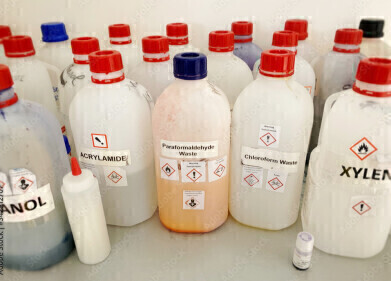Supercritical fluid (SFC), green chromatography
Are Anti-Malarial Treatments Failing? - Chromatography Investigates
Oct 28 2018
Malaria is a preventable disease – but that didn’t stop over 210 million cases of malaria in 2016 that resulted in 445,000 deaths. It is estimated that over 3 billion people live in areas where there is a risk of malaria transmission. Malaria is recognised as one of the major health priorities, particularly in areas of South-East Asia and Africa.
Removing the vector
The World Health Organization (WHO) coordinates many of the activates that are used to combat the spread and aid in the elimination of malaria. The focus of the activities is on the treatment of malaria and putting practices in place to try and reduce the incidence of people becoming infected - which includes vector control and the elimination of malaria by interrupting the local transmission of the malaria causing parasite.
Although elimination is the goal, at present, treatment currently offers the best. Two of the main strands for treating malaria include the use of chemoprophylaxis and the use of anti-malarial drugs. Chemoprophylaxis is simply the use of drugs to prevent disease – in the case of malaria, it could mean giving pregnant women a course of treatment to prevent infection or holidaymakers taking malarial tablets when they travel in areas where catching malaria is a risk.
Use combination rather than mono therapy
The anti-malarial treatment that is promoted by WHO and other agencies is known as artemisinin-based combination therapy or ACT. Another therapy, artemisinin-based monotherapy is actively being withdrawn from use as it is considered as a major factor in the development of resistance to artemisinin-based drugs. This is particularly important as ACTs are the recommended method for antimalarial treatments and there are no new treatments on the horizon for the next few years. So, it is imperative that the efficacy of ACTs must be preserved.
Chromatography tests the drugs
A recent paper published in Malaria Journal has looked at the quality of anti-malarial treatments available in Kenya. There have been reports of sub-standard and falsified anti-malarial medicines – so the researchers set out to test the quality of the drugs they found in health facilities in Kenya – 39 samples were obtained from both private pharmacies and public health centres and hospitals.
They used chromatography to help to analyse the samples – a technique that is used in many modern laboratories as discussed in the article, Addressing the Need for Faster Screening and Fraction Collection for Chiral and Achiral SFC. The team report that:
‘All the anti-malarial drugs that were analysed in this study complied with quality control tests. This is encouraging given the high malaria burden in Kenya.’
Events
Feb 03 2025 Dubai, UAE
Feb 05 2025 Guangzhou, China
Mar 01 2025 Boston, MA, USA
Mar 04 2025 Berlin, Germany
Mar 18 2025 Beijing, China









.jpg)




